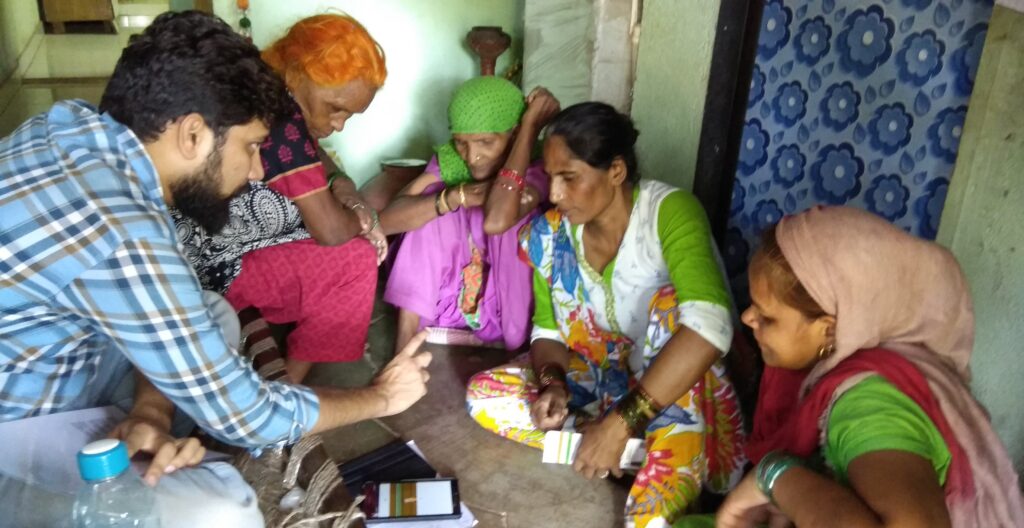Tuberculosis (TB) is the leading infectious cause of death worldwide. Often referred to as the “forgotten pandemic”, it’s a disease found in every country in the world, and one of the most deadly. It’s responsible for the cycle of poverty and illness that traps individuals, families, and communities for generations.
TB is fully curable when patients follow a strict treatment regimen which involves taking a combination of several antibiotics over a period of at least six months. This treatment adherence is vital for curing and eradicating TB. However, for a number of reasons, such as significant side effects, housing and job insecurity, lack of physical access to healthcare, and/or lack of awareness about the treatment, some patients fail to complete their treatment. By not adhering to their specific treatment regimen, or by stopping treatment before completing the full course, patients are likely to develop deadlier, drug-resistant versions which are more toxic, limited, expensive, and fatal. It can devastate economies and is projected to cost the world $16.7 trillion dollars over the next decade.
Poor adherence to TB treatment is an overwhelming challenge facing TB control across the world. In some countries, nearly half of all TB patients face significant interruptions to their treatment, defined as loss to follow up (LTFU), and in countries with particularly high incidence of TB, like India, in spite of a strong national TB control program, it is estimated that somewhere between 12 and 36 percent of patients are LTFU.
At the core of this challenge is the need to identify and engage patients that are most at risk of dropout as early as possible. Encouragingly, the proliferation of low cost digital tools combined with community-oriented efforts and advances in data science could revolutionize the way we collect digital health data about patients closer to where they live, better understand their needs, and encourage better TB treatment adherence.

Tweet by Wadhwani AI.
To try and tackle this challenge, we’ve partnered with Operation ASHA (OpASHA), a global leader in pioneering the use of digital technologies for TB treatment, and a recognized innovator in the Innovations in Healthcare network. OpASHA brings health services to the poorest and most underserved communities in India, Cambodia, Zambia, Afghanistan, and Tanzania. It actively works to contain the spread of TB by promoting early detection, proper treatment adherence, and preventing transmission. By combining a rigorous community-first approach and a suite of digitals tools, the result is a high impact and low cost model of care that’s optimized for treatment adherence.
.jpg)
OpASHA delivers TB treatment by combining a community-based approach and a suite of digital tools to support case identification, patient enrollment, patient counseling, and daily observed therapy.
DataKind, DataKind Bengaluru, and OpASHA will explore opportunities to leverage data science and routine community health data to identify key attributes that are potent predictors of loss to follow up to to develop a reproducible and scalable method to help identify patients that are at risk of discontinuing their TB treatment.
“Operation ASHA has developed an effective and highly innovative patient-centric, low cost, last mile delivery system that is scalable and replicable worldwide and is heavily supported with technology,” said Shruti Ahuja, OpASHA’s Deputy Director, Finance & Communications. “It’s a dynamic model, which keeps improving with research alongside leading organizations across the world, including with technology leaders like DataKind. This helps Operation ASHA meet its mission of TB eradication.”
We’re excited to share more as we work with OpASHA to help boost its mission and enable frontline health workers to engage with patients earlier and help them commit to their treatment, so that incurable forms of TB and deaths caused by TB can be prevented.
OpASHA has partnered with us to help advance their mission in providing TB treatment and health services to underserved communities in India. We joined forces with volunteers from DataKind Bengaluru to develop a reproducible method to help identify patients that are at risk of discontinuing their TB treatment.
OpASHA DataCorps Team: Suguna Jayaraj (Data Ambassador), Venkataramanan Tharagam (Project Manager), Harmandeep Kaur (Data Expert), Bhargav Kowshik (Data Expert), Kriti Mahajan (Data Expert)
Frontline Health Systems Impact Practice: We’re honored to work with OpASHA under our Frontline Health Systems Impact Practice. We’ve evolved our long-term projects into a program to drive sector-wide change called Impact Practices. The first of its kind, our Impact Practices position DataKind to meet the needs of multiple organizations within a sector, which give our solutions a pathway to scale and support systems change efforts.
Header image above courtesy of Operation ASHA.
If you want to see health systems transformed, join us in advancing the use of data science and AI to support causes that can help make the world a better place.
- Interested in supporting our work? Donate here.
- Interested in sponsoring a project? Partner with us.
- Interested in volunteering with DataKind? Look no further.
- Interested in submitting a project? Go for it!
As always, thank you for your support of this critical work!
Quick Links
- Pathways to Increasing Trust in Public Health Data
- Reducing Maternal & Child Mortality: Lwala Community Alliance
- Optimizing Access to Healthcare Services: Riders for Health
- How Data Empowers Health Workers—and Powers Health Systems
- Strengthening Frontline Health Systems with Data Science & AI: Updates From Our First Cohort of Projects
- Using Data Science & AI in the Service of Community Health Workers
- Engineering Scalable Data Quality Assessments for Frontline Health with Medic Mobile
- Creating a Systems Change Approach to Data Science & AI Solutions



